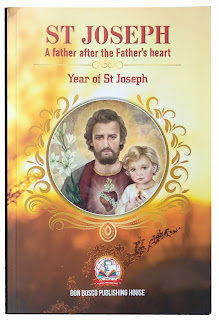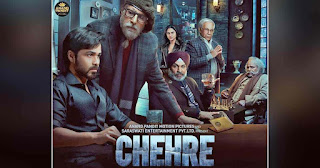Philosophical Understanding of Cultures and Festivals of North East India (Book Review)
Philosophical
Understanding of Cultures and Festivals of North East
India , Edited by Dr. Dominic Meyieho and Dr. Joseph
Puthenpurackal, Shillong: Don Bosco Publications, DBCIC, 2015, ISBN
81-85408-00-57, pp. 136, Rs. 300.
Today’s fast changing and globalizing world with its many
and multiple challenges demands from us that we go deeper into understanding
the various facets of culture. With this motivation, Don Bosco Centre for
Indigenous Cultures, Shillong, conducted a seminar entitled, “A Philosophical Understanding
of Culture and Festivals”. This book is a collection of the papers presented at
the seminar. The cultures and festivals of North East India to survive need to
rediscover its spiritual and philosophical roots. The papers reflect the
situation and culture of the people of the North East and seek to highlight the
indigenous culture.
Thomas Menamparampil discusses the passage of culture to a
focal position in human life. In the past, culture was not considered very
influential but today we see how culture influences the mindsets of
communities, their social cohesion, motivation for achieving particular goals
and for adding purposefulness in all that is done, besides playing a key role
in economic development. The author takes on a pastoral approach and discusses
how cultures can be revived to meet the changes wrought by modernization.
Tharsis Maria Arul Anthuvan affirms that a human person is
fundamentally cultural. A philosophy of culture ought to deal with the
different thoughts or philosophies of authors who have acknowledged that the
human person is basically cultural and also have systematized or thematised a
study of cultures and civilizations. Thus, he goes on to present the thought of
a few philosophers over the ages who have philosophized on culture.
Joy Kachappilly attempts ‘a Critical Understanding of
Cultural Festival’ with emphasis on the Wangala
of the Garos. Festival assume great significance in people’s life in society
and form an integral part of culture. The Wangala
is a festival of thanksgiving. The author narrates the manner of
celebrating the festival traditionally and contrasts it with the current
scenario.
Kezhangunuo Kelio approaches the festivals of the Angami Naga tribe from a feminine
standpoint. Angami festivals are
usually agriculturally related. Womenfolk play a vital role but are not in the
forefront. They are seen as initiator, mediator and sustainer but are not given
equal status to men. The author calls for a deconstruction of the Angami festivals and a re-construction
from the feminist perspective.
Joe Francis attempts to understand and interpret how the
Mizos make sense of their world through their cultural practices, particularly
of Christmas celebration. He takes us through the various aspects of the
celebration and delineates their connection to Mizo culture and philosophy.
The Mlei-Ngyi festival
of the Zeliang Naga tribe is discussed in Shaji
Mathew’s paper. He walks us through the celebration of the festival and presents
the results of a questionnaire put to Zeliang youth. The findings are
surprising. The festival is no more celebrated in its traditional pomp, hue or
length. There is a need for re-visiting the festival, understanding its
cultural richness and drawing inspiration for socio-cultural, economic and
religious benefit.
Barnes Mawrie in his paper ‘A Philosophical View of Khasi
Culture’, points out the genesis of the Khasi culture and its connection to the
metaphysics of the same. Khasi culture is polarized by western materialism and
consumerism. He discusses five aspects of Khasi culture which reveal its
metaphysical nature. They are the Religious and Altruistic sense, Sense of
Kinship, Sense of Good, Sense of Religion and Sense of Tradition.
Somingam Mawon’s paper focuses on ‘Understanding traditional
Tangkhul Naga Festivals and its Relation with Agricultural activities’. There
are sixteen traditional Tangkhul
festivals and each is considered briefly. He concludes with a few personal
observations and remarks.
The Baikho festival of the Rabhas is presented by Jose
Jacob. The continuity and change that the festival has experienced is honestly
noted. The author acknowledges the mighty influence of modernity and advises vigilance against
losing the original genius of the community.
Dominic Meyeiho’s paper, A
Philosophical Understanding of Culture and Festivals of the Southern Angami
Nagas attempts to cultivate their culture through a re-reading of its
festivals. An attempt is also made for establishing a cross-cultural dialogue
between the festivals of the Southern Angamis and the Christian feasts, so that the Church
can take root in the culture. Six festivals and similar Christian feasts are
highlighted. The aim is not to compare but to explore avenues for dialogue.
Theorizing a
Sustainable Cultural Identity for a Global World: A Transactional Philosophy of
Culture by Baudelaire Ulysse, discusses the impact of globalization on
culture and indicates the need for a transactional philosophy of culture for
mutual enrichment and progress. The perils of cultural isolation are presented
and the idea of openness to other cultures is propagated. Self preservation of
cultures ought not to be achieved via isolation but rather through transaction.
A transactional philosophy of culture has helped preserve and perpetrate local
cultural identities in North East India, and it might be the most effective
method of sustaining local identity in the globalized world.
The book is marred by a few grammatical errors. The layout
is pleasant but the matter leaves something to be desired. The topics
considered are insightful and lend to an appreciation of North East Indian
culture. The book has in a way, opened doors to indigenous reflection on North
East Indian culture and has paved the way for continued studies in culture.


Comments
Post a Comment